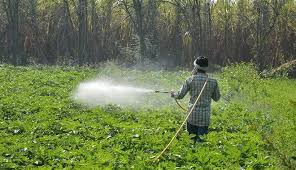
In News
The Union Cabinet has approved a Pesticides Management Bill, 2020, that will regulate the usage of pesticides in farming.
In-Detail
- According to the government, the new bill will regulate the business of pesticides across the country.
- It will compensate the farmers who lost their crops due to spurious pesticides.
- The Bill will empower the farmers to have access to all the information on pesticides which will be open source and will be made available in all languages.
The Need for a New Bill
- Pesticide business is currently regulated under the Insecticides Act, 1968 and Insecticides Rules, 1971.
- So far, the experience in administering the Act and rules have been far from satisfactory.
- They also opened up many gaps that necessitated a new Bill.
- A pesticide management bill was in consideration since 2007.
- Only in 2018, the Union government has put out a draft Pesticides Bill to replace the Insecticides Act, 1968.
- In that version, there was a proposal for penalising the sale of spurious pesticides to the tune of Rs. 50 lakhs and up to five years of jail term. The same is now included in the Cabinet approved Bill.
- Under the Insecticides Act, the penalty is Rs. 2000 and up to three years of imprisonment.
Pesticides in India
- India uses different varieties of insecticides, herbicides and fungicides.
- The country is one of the largest producers and consumers of pesticides in the world.
- Since 2009-10, there is a significant increase in the usage of herbicides due to an increase in agriculture labour costs.
- Among the states, Maharashtra has the highest consumption of pesticides.
- It is followed by Uttar Pradesh, Punjab and Haryana.
Importance of the New Bill
- The new Pesticide Management Bill is of importance due to the overuse and misuse of pesticides in the country and their harmful effects on humans and the environment.
Concerns With the Bill
- If the new bill is the same as the 2017 draft Bill, then there are some concerns.
- For one, the 2017 draft Bill has an inadequate representation of States to decide on a pesticide.
- In the past, states like Punjab wanted to ban chemicals like glyphosate but was unable to do so for several years.
- As states have the best knowledge on the agro-ecological climate, the environment and soil conditions of their respective states, they must be allowed to have more say while deciding on the pesticides.
- Also, the bill should have provisions such as the minimal usage of pesticides per farm.
Conclusion
Overall, the bill is necessary as pesticides are posing a grave threat to human health.

Leave a Reply
You must be logged in to post a comment.